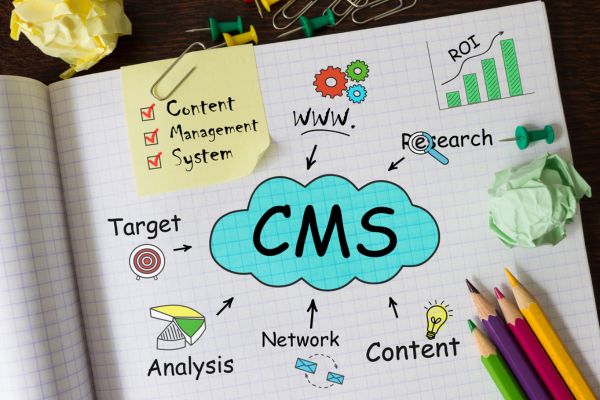Technology is evolving at a pace that’s hard to keep up with, isn’t it? Every day, there seems to be something new, something groundbreaking. Whether it’s a gadget, software, or an innovative service, the impact of new technology on our everyday lives is undeniable. But what exactly is this “new technology,” and how is it changing the way we live, work, and play?
What Is New Technology?
At its core, new technology refers to innovations that are either freshly introduced or undergoing rapid development and adoption. This could be anything from artificial intelligence (AI) and blockchain to advanced robotics and even quantum computing. These innovations are designed to make processes more efficient, open up new possibilities, or revolutionize entire industries.
Types of New Technology You Should Know About
Let’s break it down into some key categories where new technology is making a significant impact:
- Artificial Intelligence (AI) and Machine Learning (ML): These technologies enable machines to learn from data, adapt to new inputs, and perform tasks that typically require human intelligence.
- Blockchain: Initially created for cryptocurrency, blockchain technology has expanded its use to sectors like healthcare, supply chain management, and more due to its secure and decentralized nature.
- Quantum Computing: A leap beyond traditional computing, quantum computing uses quantum bits (qubits) to process information in ways that current computers can’t even touch.
- Internet of Things (IoT): IoT involves connecting everyday devices to the internet, allowing for seamless interaction and automation.
- 5G Technology: The next generation of mobile internet connectivity, 5G, promises faster speeds, lower latency, and the ability to connect more devices at once.
The Role of Artificial Intelligence in Our Lives
When it comes to AI, it’s a game-changer. You’ve probably noticed how it’s sneaking into various parts of your daily routine. Whether it’s voice-activated assistants like Siri and Alexa, recommendation algorithms on Netflix, or even autonomous cars, AI is no longer the stuff of science fiction.
How AI Works
AI works by analyzing vast amounts of data, identifying patterns, and making decisions based on that information. Think of it like this: when you ask your phone for the weather, it’s not just pulling up data. It’s also learning from past interactions to deliver more accurate and personalized results over time.
Impact on Industries:
- Healthcare: AI is helping doctors diagnose diseases faster and more accurately, thanks to pattern recognition software that can scan medical images for irregularities.
- Retail: Ever wondered how online stores always seem to know what you want? That’s AI-powered recommendation engines at work, analyzing your browsing habits to suggest products.
- Finance: AI is making waves in fraud detection, where algorithms analyze transactions to flag anything out of the ordinary.
Blockchain: More Than Just Cryptocurrency
Ah, blockchain. Most people hear this word and immediately think of Bitcoin, right? While cryptocurrency was blockchain’s first major application, this technology has far-reaching implications beyond digital coins.
How Blockchain Works
In simple terms, blockchain is a decentralized ledger of all transactions across a network. Once a transaction is recorded, it can’t be altered without changing every subsequent block, which makes the system nearly tamper-proof.
Where It’s Making an Impact:
- Supply Chain Management: By using blockchain, companies can track products from their origin to the customer, ensuring transparency and reducing fraud.
- Healthcare: Blockchain can store patient records securely and allow for real-time updates accessible by different healthcare providers.
- Finance: Besides cryptocurrencies, blockchain is now being explored for secure, fast, and transparent financial transactions.
Quantum Computing: The Next Frontier
Quantum computing sounds like something out of a sci-fi movie, doesn’t it? But it’s real, and it’s happening. This new technology promises to solve complex problems that current computers can’t handle.
How It Works
Quantum computers operate on qubits, which, unlike traditional bits that represent either 0 or 1, can exist in multiple states at once. This allows quantum computers to process much more information, much faster.
Potential Applications:
- Pharmaceuticals: Quantum computers could simulate molecular structures, speeding up drug discovery.
- Climate Modeling: Imagine accurately predicting weather patterns weeks in advance or modeling the effects of climate change with greater precision.
- Cryptography: Quantum computing could make current encryption methods obsolete, requiring entirely new ways to secure data.
The Internet of Things: A Connected World
Have you ever considered how many devices in your home are “smart”? From refrigerators that tell you when you’re out of milk to thermostats that adjust themselves based on your habits, the Internet of Things (IoT) is making life more convenient.
How IoT Works
IoT refers to devices connected to the internet that communicate with each other. These devices collect data, analyze it, and sometimes act on it, often without any human intervention.
Where IoT is Transforming Life:
- Smart Homes: Your lights, security cameras, and even coffee machines can now be controlled remotely via your smartphone.
- Healthcare: Wearable devices monitor vital signs and send data directly to healthcare providers, enabling real-time health management.
- Agriculture: Farmers are using IoT to monitor soil conditions, track livestock, and even automate irrigation systems, improving productivity and sustainability.
5G: Faster, Smarter, and More Connected
The arrival of 5G technology is set to unlock a new era of connectivity. We’re talking about speeds that are up to 100 times faster than 4G and the ability to connect billions of devices seamlessly.
How 5G Works
5G operates on higher frequency bands, which allows for faster data transfer rates and lower latency. This means quicker downloads, real-time communication, and the potential to support a massive number of devices all at once.
Why It Matters:
- Autonomous Vehicles: 5G could provide the real-time data necessary for self-driving cars to operate safely and efficiently.
- Smart Cities: Imagine a city where everything from traffic lights to waste management systems are interconnected and running in sync, thanks to 5G.
- Healthcare: Telemedicine will see a massive boost, with doctors being able to consult with patients remotely using high-definition video and real-time data sharing.
The Ethical Considerations of New Technology
As exciting as all these developments are, they’re not without their challenges, are they? With new technology comes a range of ethical considerations that we need to tackle head-on.
Privacy Concerns
AI and IoT devices collect vast amounts of data, often without users fully understanding how that data is used. Is it ethical for companies to have this level of insight into our daily lives? That’s something we need to consider as these technologies continue to evolve.
Job Displacement
While new technology creates jobs in fields like AI and blockchain, it also poses the risk of job displacement in traditional industries. How do we ensure a smooth transition for workers who may be replaced by machines?
FAQs About New Technology
- What is the most exciting new technology today? The most exciting new technologies today include AI, quantum computing, and 5G, all of which are set to revolutionize multiple industries.
- How does AI benefit the healthcare industry? AI helps with faster and more accurate diagnoses by analyzing large datasets and detecting patterns that might not be obvious to human doctors.
- What’s the future of blockchain technology? Blockchain is expected to grow beyond cryptocurrency, impacting areas like finance, healthcare, and supply chain transparency.
- Will quantum computing replace traditional computers? Not anytime soon, but quantum computing will handle specific tasks that are too complex for traditional computers, complementing rather than replacing them.
Conclusion
There’s no doubt about it: new technology is changing the world faster than we can sometimes comprehend. From AI to quantum computing and beyond, we’re witnessing innovations that will shape the future in ways we can only begin to imagine. While the benefits are massive, it’s also crucial to address the ethical concerns and ensure that these technologies are accessible and beneficial to all.
Authoritative Links:
- www.ibm.com/quantum-computing/
- www.microsoft.com/en-us/ai
- www.blockchain.com



